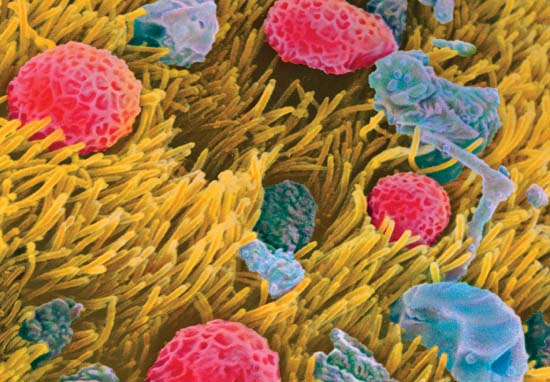Gene Mutation Behind Ciliary Dyskinesia, a Relative of CF, Identified By Researchers
Written by |

 One of the pressing concerns physicians have with patients diagnosed with cystic fibrosis (CF) is their increased susceptibility to respiratory infections along with greatly decreased lung clearance. A condition that manifests quite similarly to CF is primary ciliary dyskinesia (PCD), a hereditary condition that impairs lung cilia function, which affects over 20,000 people today.
One of the pressing concerns physicians have with patients diagnosed with cystic fibrosis (CF) is their increased susceptibility to respiratory infections along with greatly decreased lung clearance. A condition that manifests quite similarly to CF is primary ciliary dyskinesia (PCD), a hereditary condition that impairs lung cilia function, which affects over 20,000 people today.
A team of investigators from the University College London recently identified a gene associated with PCD. Lead author, Dr. Hannah Mitchison, explains that the study’s goal is to establish a deeper understanding of this rare, CF-like condition on a genetic level in order to determine which gene alterations produce the most serious respiratory problems, and eventually contribute to the development of more efficient treatments.
Dr. Mitchison and her team’s study involved two pediatric PCD patients, whose DNA samples were analyzed and compared to those obtained from members of their family. A particular alternation was noted in the CCDC151 gene, which according to the investigators, can be solved via “read-through therapy,” a promising technique that may correct “nonsense” nDNA mutations, as this same therapy has shown positive results in patients with CF.
[adrotate group=”1″]
In recent updates on cystic fibrosis, an emerging alternative to receiving an injectable flu vaccine is the nasal live-attenuated influenza vaccine (LAIV). While CF patients may be concerned that inhaling the live microorganisms may result in an infection, a new study confirms it is safe.






